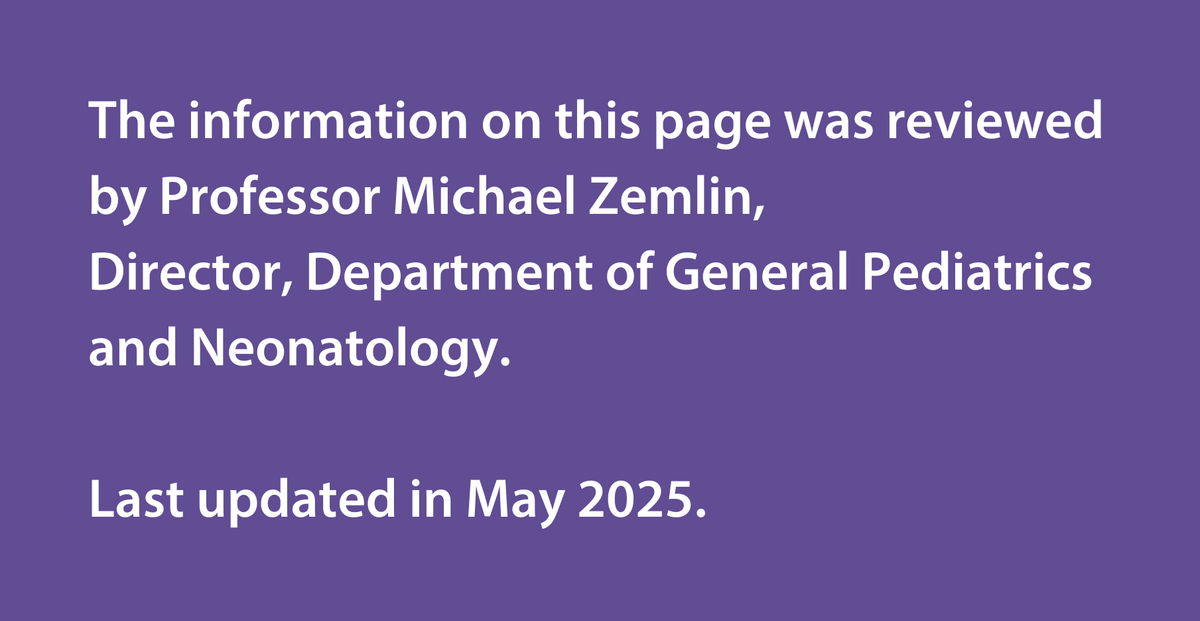Please consider reading the information that is relevant to you and your little one(s). By doing so, you can avoid overwhelming yourself with too much information in an already distressing time.

Necrotizing Enterocolitis (NEC) is a serious condition where the intestine becomes inflamed and damaged, sometimes leading to tissue death. It mostly affects preterm babies, especially after the second week post-birth. The earlier the baby is born, the higher the risk. About 1 in 20 very preterm babies get NEC, especially if they are very ill or fed formula⍰ instead of mother’s own milk or donor human milk.
Though NEC can be severe, many babies recover without lasting issues. However, sadly it can be a rare cause of late loss of life in preterm babies. If NEC is suspected, the healthcare team will stop oral feeds, start intravenous⍰ fluids and antibiotics⍰, and do X-rays⍰ and blood tests. Treatment typically lasts 7-10 days if confirmed. In more severe cases – often when there is a bowl perforation – surgery may be needed. Some babies become quite sick during episodes of NEC and may need extra breathing support and intensive care until recovery.
Reflux happens when some of the milk or food in the stomach comes back up into the throat and mouth. This can cause discomfort and burning sensations due to stomach acid. Preterm or sick babies are more prone to reflux, but it is quite common and affects nearly half of all babies.
Signs of reflux include bringing milk back up, vomiting⍰, hiccups, coughing, fussiness, and feeding difficulties. If untreated, it can lead to chest infections and poor weight gain. If you notice these signs, talk to your healthcare providers immediately.
Mild reflux often improves on its own and gets better as your baby starts eating solids. Treatment varies based on severity, but you can help by doing Kangaroo Mother Care after feeds, feeding in different positions, keeping the baby's head raised, changing nappies (diapers) before feeds, feeding smaller amounts more frequently, and winding your baby gently after feeds.

